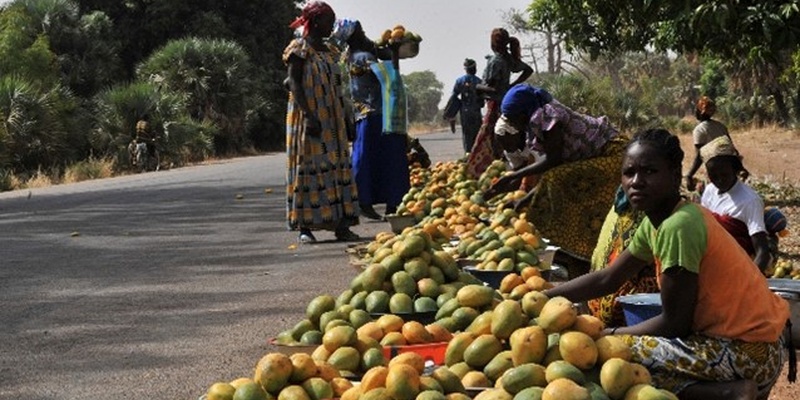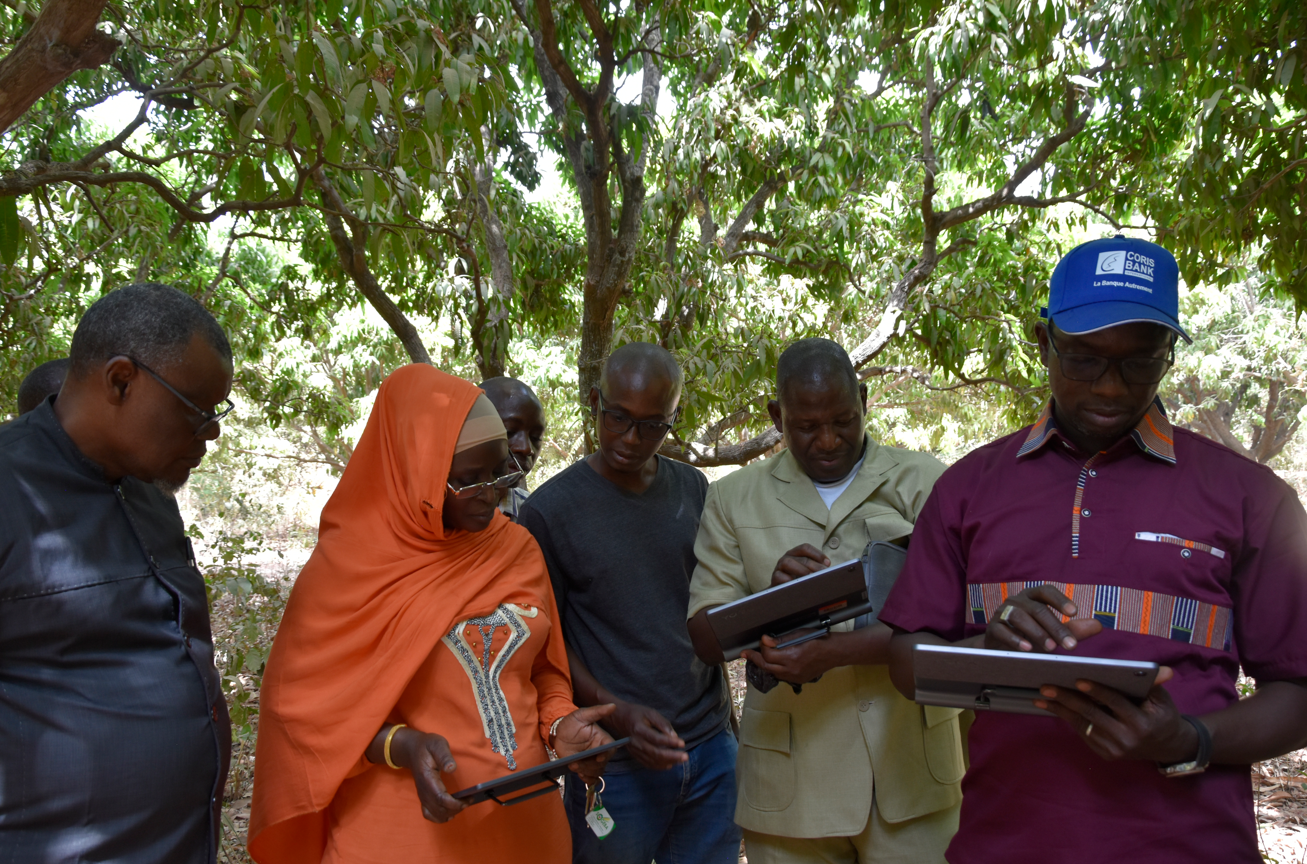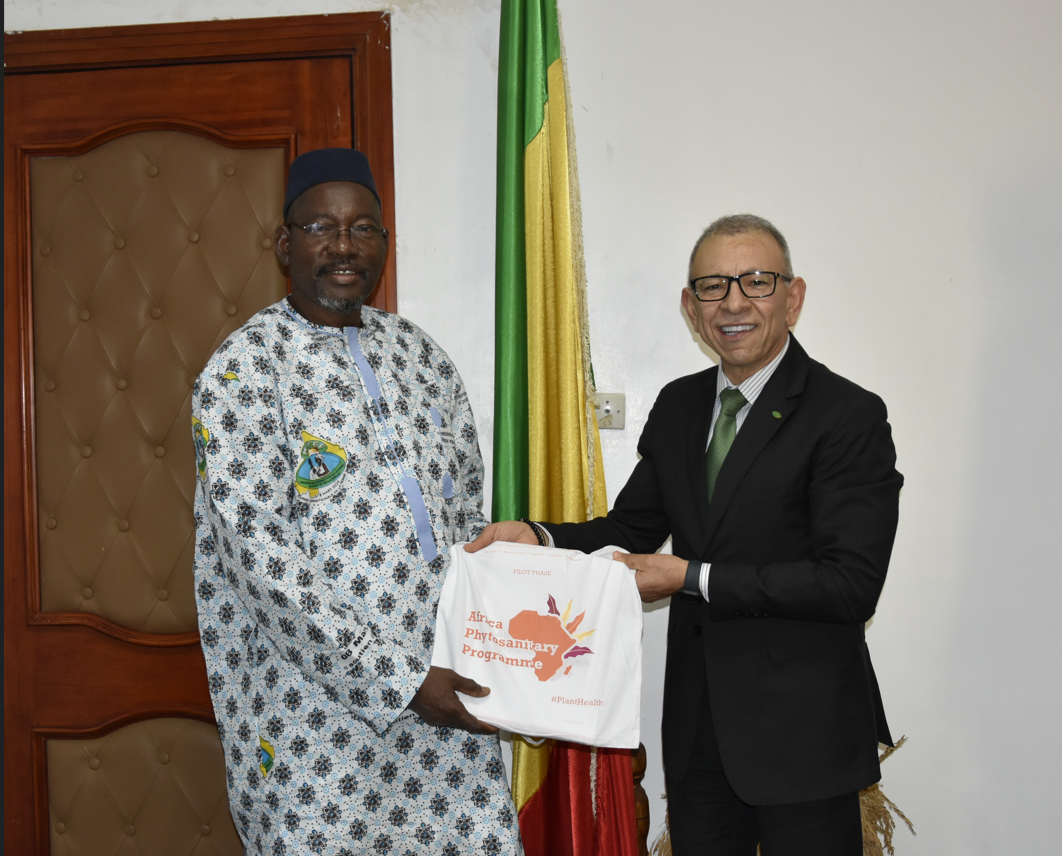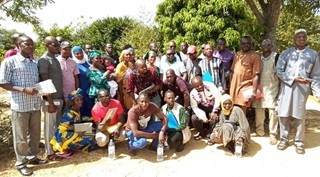SPOTLIGHT: Building a resilient frontline against plant pests in Mali
Posted on Tue, 09 Sep 2025, 07:37

©FAO/ Sia Kambou
Agriculture is vital to Mali’s economy and food security, with mango production playing a significant role in enhancing livelihoods for millions of farmers and creating jobs across the value chain. The West African country produces about 800 000 tonnes of mangoes annually, exporting over USD 30 million worth. However, plant pests such as the Fruit fly (Bactrocera spp.), affect crop productivity and international trade.
To fight back, Mali has adopted several strategies, including joining the Africa Phytosanitary Programme (APP) and evaluating its phytosanitary systems, to protect plant health, ensure international trade in high-value crops such as mango and safeguard farmers’ incomes.
A better way through digital pest surveillance
Mali and 19 other countries have joined APP, an initiative of the International Plant Protection Convention (IPPC) that empowers technical staff of national plant protection organizations (NPPOs) with modern scientific approaches and digital tools to enhance pest surveillance, detection, identification and reporting. At the launch of APP in 2023, five plant health specialists from Mali were among those trained and equipped with state-of-the-art tablets and APP digital tools, positioning them to train their peers back home. Nearly two years later, the number has grown to 20 national plant health managers and 50 field agents, significantly boosting the NPPO's capacity to monitor key pests.
By August 2025, thanks in part to 40 additional tablets from the IPPC Secretariat, Mali had conducted about 170 surveys of the Oriental fruit fly (Bactrocera dorsalis) and Fall Armyworm (Spodoptera frugiperda), two of the most devastating pests of crops like mango and maize, respectively, and Mali’s priority pests. Survey data will help determine the presence of the two pests, ensuring effective response and control.

Halidou Mohomodou (left), Head of NPPO of Mali and Adama Malle (second right), Head of Surveillance, with NPPO technical officers during a data collection exercise. ©FAO/ Anita Tibasaaga
“APP has transformed our pest surveillance activities by improving the technical capacity of our staff through training and introducing a systematic pest monitoring and data collection system,” said Adama Malle, Head of Surveillance, Alert and Intervention Division at the Office of Plant Protection— also Mali’s NPPO. “It is easier to monitor pests and their population dynamics in the field, follow up on the work of field agents, identify fruit fly species, produce alerts to help farmers prevent infestations and generate reliable real-time data for pest management decision-making”, he added. He is confident that APP’s digital surveillance system will foster traceability, help reduce interceptions of Malian mangoes in international trade and enhance compliance with international phytosanitary standards.
National leadership and strategic partnerships are key
Halidou Mohomodou, Director-General, Office of Plant Protection and Head of the NPPO, agrees, emphasising the importance of government support and national coordination. The NPPO continuously and actively engages the government, financial and technical and partners such as FAO and local programmes, to align APP with national priorities. This strong backing resulted in APP's integration into national programmes, establishment of an autonomous Plant Protection Service and additional government funding for training and phytosanitary materials such as pheromones and traps. Support from the World Bank’s West Africa Food System Resilience Programme helped expand training and more tablets are on the way, thanks to another partner.
Mali also has a robust national administrative and personnel structure comprising producers, officials from the Ministry of Agriculture, national plant protection services, the NPPO and state agencies such as the National Center for Desert Locust Control.

Osama El-Lissy (right), former IPPC Secretary, during his 2024 advocacy visit to Lassine Dembele (left), Minister of Agriculture of Mali ©FAO/Anita Tibasaaga
Challenges and lessons
Despite notable progress, Oumar Sy, Deputy Head of the NPPO, highlights areas to be addressed including internet connectivity, technical skills among field agents, transport difficulties, sustainable funding and security. However, innovation and coordination are driving change. Field agents receive targeted training, stay connected via mobile phones and operate with security escorts in high-risk zones, with the West Africa Strategic Assistance Framework further strengthening Mali's digital surveillance.
Mohomodou emphasised the importance of training, adequate equipment and materials and stronger communication and advocacy. He pointed out APP's simple methodology, digital system and integrated database that make it a unique plant protection decision-making tool. However, he called for sustainable funding and urged countries to prioritize APP and pursue strategic partnerships. Contributions can be made to the IPPC Secretariat Multidonor Trust Fund for APP.
Phytosanitary Capacity Evaluation
Mali recently commenced its Phytosanitary Capacity Evaluation (PCE), a process involving three comprehensive workshops where national stakeholders assess the country's plant health systems, identify gaps and develop a comprehensive national strategy to address them. According to Mohomodou, the PCE, supported by the IPPC, is timely and will help to fast-track the transition to a modern, digital surveillance system.

©NPPO of Mali
Going forward
Mali will continue conducting pest surveys on fruit flies, FAW and other priority pests, collecting data to back exports, especially of mangoes. The country also plans to ensure more timely pest alerts, organize more training workshops and enhance its advocacy and sensitization efforts among national stakeholders and development partners.
Related information:

